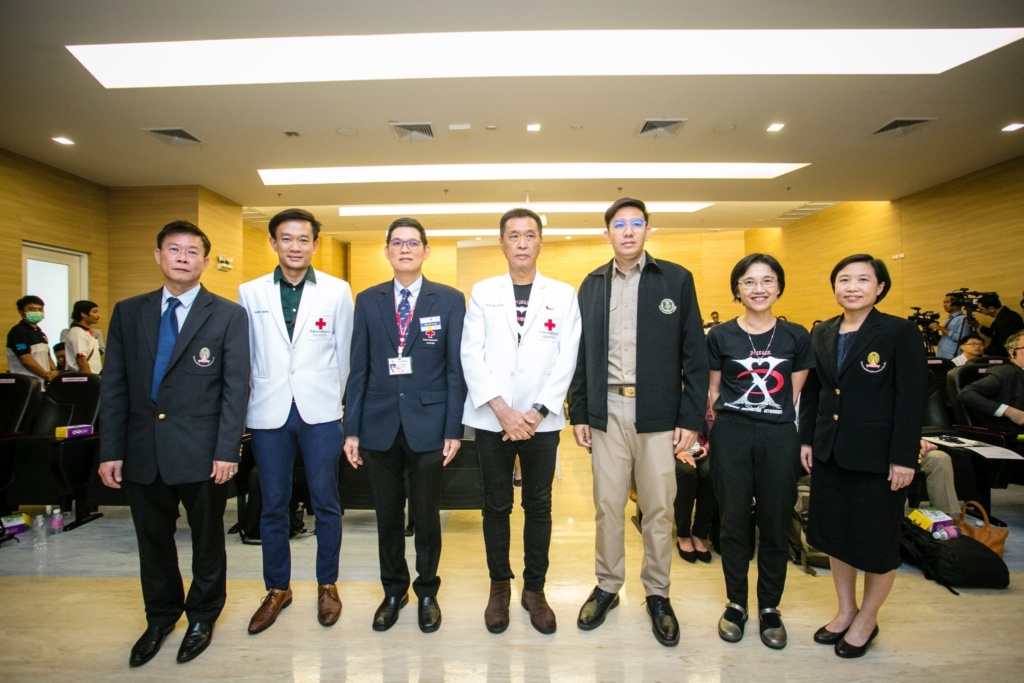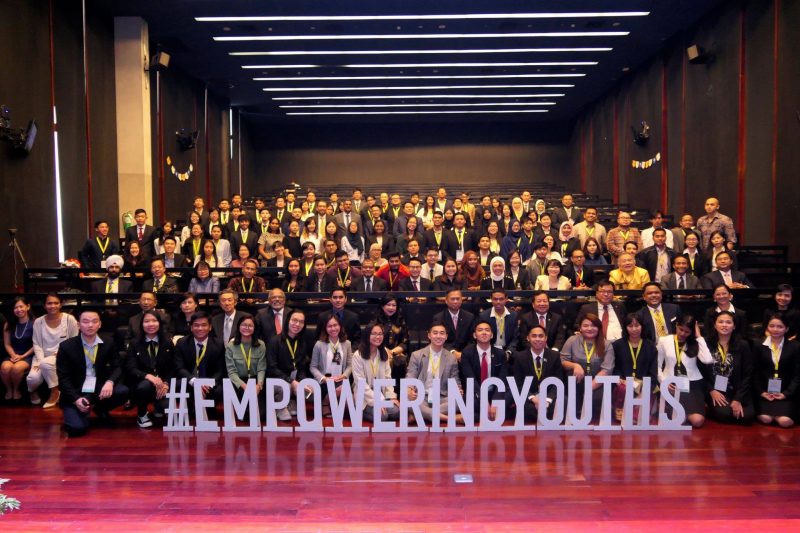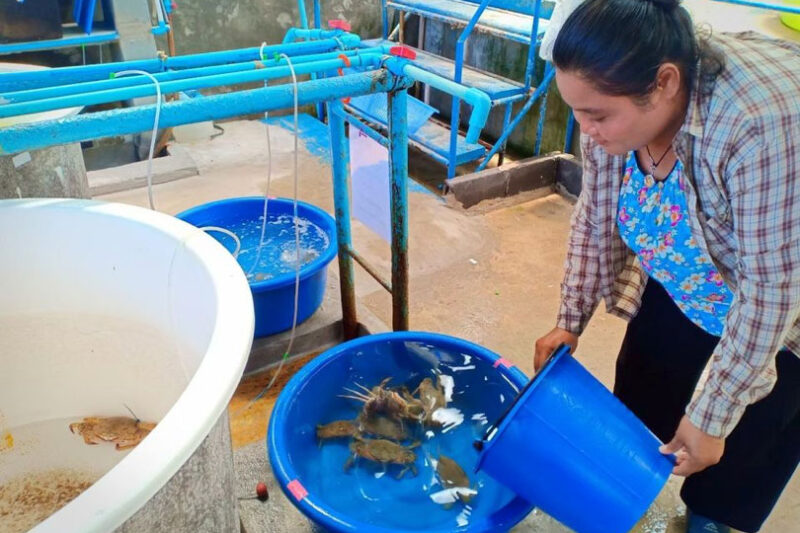Behind the scenes of the mission to fight COVID-19 for humanity Emerging Disease Health Science Center (EID)

In the past few decades, the world has had to face Emerging Diseases that have continuously intensified such as the Zika Virus, Ebola Virus, MERS virus, and most recently, humanity has had to face an emerging disease originating from the new strain of CoronaVirus which has infected over 50 million people and has killed over 1 million people of different ethnicities. One of the reasons that cause these viruses to rapidly spread is the leap forward of technology in a world without borders that facilitates the ease, convenience, and speed of travel to a point where the travel industry in many countries has steadily expanded, including Thailand.
Thailand, as a tourist destination for people around the world, is therefore at risk of having to face cross border exposure from the opening of information by the Department of Tourism. The Ministry of Tourism and Sports has stated that in the past 3-4 years, Thailand has had tourists travel to the country for various activities, seeing no less than 30 million people per year which in this amount, there may be emerging disease vectors, infecting person to person across borders as well. Surveillance of emerging infectious diseases is therefore an important mission in which organizations relating to public health across Thailand and around the world, have to recognize and respond to as an agenda. Networks need to be built to develop cooperation, leading to preparation, prevention, and control of potential new diseases and suppressing them before they spread over a wide area.
Chulalongkorn University via the Faculty of Medicine, therefore established an Emerging Disease Health Science Center in the year 2559BE, working together with the World Health Organization Cooperation Center for Research and Training on Viral Diseases to act proactively, reaching the source of disease (upstream operation), and preparing for the potential threats from the spread of emerging diseases through global collaboration. This center plays a vital role in helping Thailand to deal with the COVID-19 crisis; from supporting the investigation of disease by the Bureau of Epidemiology, Department of Disease Control, Ministry of Public Health, to being able to verify the COVID-19 infected patients and confirming the results of genetic decoding of the virus to use as information for the Ministry of Health so they are able to control the spread of infection immediately.
Prof.Dr. Teerawat Hemachuta, head of Center for Emerging Disease Health Sciences, Faculty of Medicine, Chulalongkorn University, Member of the WHO Expert Advisory Panel on Rabies, and WHO member of the International Health Regulations Roster of Experts as an expert in Human-animal interface (Zoonoses), has stated that “Over 70 percent of human pathogens originate from animals and currently there are over 500,000 unidentifiable viruses that may develop into pathogens from animals to humans and eventually emerging diseases. Therefore, examination and surveying to decipher which animals cause which diseases in humans will help us to compare the prevalence of potentially diseased areas and lead us to the creation of preventative measures alongside determining the areas of risk with more accuracy and efficiency.
The progression of emerging disease active surveillance work in Thailand by the Emerging Disease Health Science Centre is a direct result of developing continuous cooperation on both the national and international levels.
1) World Health Organization: Supporting the work of the World Health Organization on research and diagnostic testing confirming infectious diseases from animals to humans while also offering advice and organizing workshops, as an expert director, for participating countries of WHO – Regional Office for South-East Asia, which is comprised of 11 countries including Bangladesh, Bhutan, South Korea, India, Indonesia, Maldives, Myanmar, Nepal, Sri Lanka, Timor-Leste, and Thailand.
2) United States Agency for International Development (USAID): creating international emerging disease research networks through the research project PREDICT, developing laboratory abilities to be an innovation in the diagnosis of new viral infectious diseases and detection of infected patients with an unknown cause such as applied laboratories to detect the COVID-19 virus.
3) United States Department of Defense: developing research and emerging disease laboratories as well as all-round scientific tools for research, diagnosis, and surveillance of disease such as Infectious Disease Sample Bank, Virus Bank, diagnosis with a molecular biology approach, virus genetic decoding, virus culture for diagnosis, and creating Clinical Genomics Integration Platform, etc.
4) Ministry of Public Health Thailand: expand national research into local communities by developing diagnosis of Zika virus from samples other than blood and urine including breast milk, placenta, amniotic fluid, brain membranes, semen, saliva, and tears.
From the development of surveillance work for emerging diseases by Chulalongkorn University via the Emerging Disease Health Science Center, the faculty of Medicine and network partners have transformed the operations of Thai healthcare professionals to be aware so they are able to cope with emerging diseases such as COVID-19. Paired with the creation of preventative measures and the accuracy of determining at-risk areas, it is a guideline for the state and public health agencies that can be used to manage the epidemic of emerging diseases promptly, alongside dispensing knowledge to Thai people to monitor abnormal symptoms and to be able to take care of themselves and their family properly. With the cumulative number of infections and deaths in Thailand in the year of the outbreak being lower than expected, this is a confirmation of achievement from the operations of the Emerging Disease Health Science Center.
Related articles:
- https://www.aljazeera.com/videos/2020/02/03/mixed-results-in-testing-hiv-drugs-against-coronavirus/
- https://www.who.int/thailand/news/feature-stories/detail/bat-research-and-lab-readiness-boost-thailand-s-campaign-against-the-novel-coronavirus
- FINAL+REPORT+COUNTRY-THAILAND-FULL.pdf
- https://mgronline.com/onlinesection/detail/9630000008367
- https://www.bbc.com/thai/thailand-53153357
- https://www.redcross.or.th/news/information/9641/
Others
eMpowering Youths Across ASEAN Programme
Chulalongkorn University has been playing a key role since the launch of this program whose original design was formulated by the partnership between ASEAN Foundation and Maybank Foundation.





